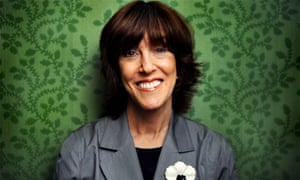Top 10 books about growing old
While ageing can easily leave some frightened, the likes of Alec Guinness, Nora Ephron and Julian Barnes have produced wry, positive takes on old age, says septuagenarian author Christopher Matthews
Christopher Matthew
Wednesday 13 October 2017
W
e have all seen old age in action and often it is not a pretty sight. Chances are, it strikes suddenly. “It is,” said James Thurber, “one of the most unexpected of all the things that can happen to a man.” In Paolo Sorrentino’s film Youth, an elderly composer played by Michael Caine sums it up: “I’ve become old and I don’t know how I got here.”
But we should never allow catastrophe to get in the way of good humour and practical common sense. “One of the most irritating things about getting old,” a friend of mine once said at lunch, “is not having any idea of how much longer one has got. Take George’s dinner jacket. He’s nearly 80. His old one is practically falling to bits, but what is the point of getting a new one if he isn’t going to get decent use out of it?”
I am confident that my own dinner jacket will see me out. Being a mere 78, I am still enjoying late middle age. However, I am all too aware that senectitude is lurks around the corner and it occurred to me that, before it strikes, I could do worse than fill the unforgiving minute with a few light-hearted observations on the perils and pleasures it may bring. Most of the writers below have taken a positive, and often wry, look at old age, while never forgetting that beneath the eccentricities that accompany advancing years lie uncertainty, grief and thoughts of mortality.
Mortimer was only too aware that the price to be paid for getting old is making oneself looking ridiculous. The opening sentence says it all: “The day will come in your life, it will almost certainly come, when the voice of God will thunder at you from a cloud: ‘From this day forth thou shalt not be able to put on thine own socks.’” Reading this collection of theatrical anecdotes, gossip, fond memories of friends and witty observations made while growing old disgracefully reminds one that possibly the greatest pleasures of old age is reminiscence.
 Guinness is equally reassuring to those of us who wonder what enjoyment can be found in old age. Chock-a-block with opinions on books read, plays and films seen, stories of happy times spent with old friends such as Alan Bennett, Irene Worth and John Wells, and the joys of life at home in Hampshire, this diary is interspersed with poignant accounts of the death of friends and funerals attended.
Guinness is equally reassuring to those of us who wonder what enjoyment can be found in old age. Chock-a-block with opinions on books read, plays and films seen, stories of happy times spent with old friends such as Alan Bennett, Irene Worth and John Wells, and the joys of life at home in Hampshire, this diary is interspersed with poignant accounts of the death of friends and funerals attended.
Nora Ephron never made it to old age: she died aged 71, from pneumonia brought on by acute myeloid leukaemia. Yet the screenwriter and author knew as well anyone what it feels like to grow older and – as her title declaims – some of the annoying and often absurd failings that the advancing years bring with them. Not being able to remember a damned thing is only one; she cheerfully lists almost a dozen people she met who she can’t remember anything about (Groucho Marx, Cary Grant, Jacqueline Kennedy Onassis and Peter Ustinov).
4. These Foolish Things by Deborah Moggach
4. These Foolish Things by Deborah Moggach
Moggach’s novel, on which the film of The Best Exotic Marigold Hotel is based, not only has a different title but also a more purposeful premise. Convinced that Britain is not good at looking after the elderly, and that no one is better at it than the Indians (“Know what our pension scheme is called? It’s called the family!”), wheeler dealer Sonny’s notion of converting an old guest house in his home town of Bangalore into a retirement home turns out to be a stroke of genius. Moggach’s story also contains a serious message for those struggling to cope with care in the community.
Gray has been a wonderful companion for many oldies, including myself, thanks to the four volumes of utterly addictive diaries he started writing at 65 and continued until his death in 2008 aged 71. When he is not describing dinner with holidays in Greece with his beloved Victoria, trying to give up smoking or being in lights on Broadway, he is wondering – and often worrying – about almost any subject, however trivial, that drifts into his head. As well as being one of the funniest writers I have ever read, he is terribly moving, especially in this final volume, as he battles cancer in what he describes as “the beginning of my dying”.
Athill will be 100 on 21 December and is more qualified than most to reflect on the losses – and more importantly the gains – that old age brings. Never one to harbour regrets, her spirits are as high as ever in this wonderful book of reflections on loves, friendships and events in her long life. She cheerfully offers readers wonderful, wise and often comforting thoughts as she contemplates death.
Reading this book is like going on a long walk with a friend who is as erudite and serious as he is entertaining. Barnes is at his most contemplative as he takes us through his family and childhood and into arguments about the existence of God (“I don’t believe in God, but I miss Him”) and startling exchanges with his philosopher brother. But what preoccupies him most is death and the fear of death – his, mainly. What will it be like when it comes? A good one, or one filled with pain and regret?
“Mortality can be a treacherous subject,” writes surgeon Atul Gawande in this extraordinary book about ageing and death in the 21st century. For many people, medicines have turned the end of life into a thoroughly grim affair. But it need not be so, says Gawande. Dying should not be meaningless and something to be dreaded. To rely on medicines that addle our brains is to deprive us of useful and coherent last days on Earth. It is not a good death we should be hoping for, but a good life – to the very end.
Having nicked his title, the least I can do is nod in admiration at Hemingway’s legendary story of a young boy, an old man and a huge fish. Told in the sparest language, the respect that exists between the fisherman and the boy is perfect and touching, as is the respect the old man shows for the fish, with which he converses as it drags him far out to sea.
10. The Old Boys by William Trevor
The coming election for the presidency of the Old Boys’ Association brings out all the decades-old enmities held by these rather sad old men, in this funny if grim book. Yet old age has it benefits, as General Sanctuary points out to a fellow spectator at the Old Boys’ cricket match. “We are lucky, Lady Ponders: it is pleasanter to be over 70, as it was to be very young. Nothing new will happen to us again. To have everything to come, to have nothing to come – one can cope.”
- The Old Man and the Knee by Christopher Matthew is published by Little Brown












No comments:
Post a Comment